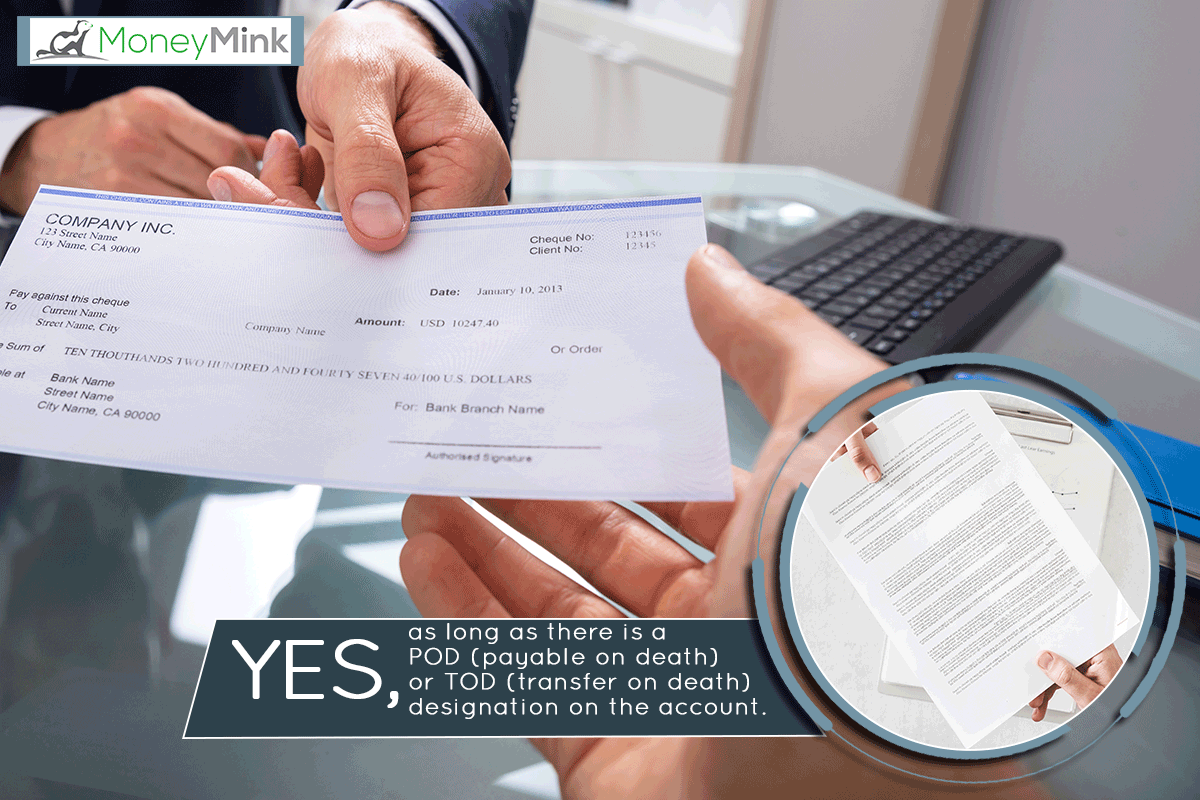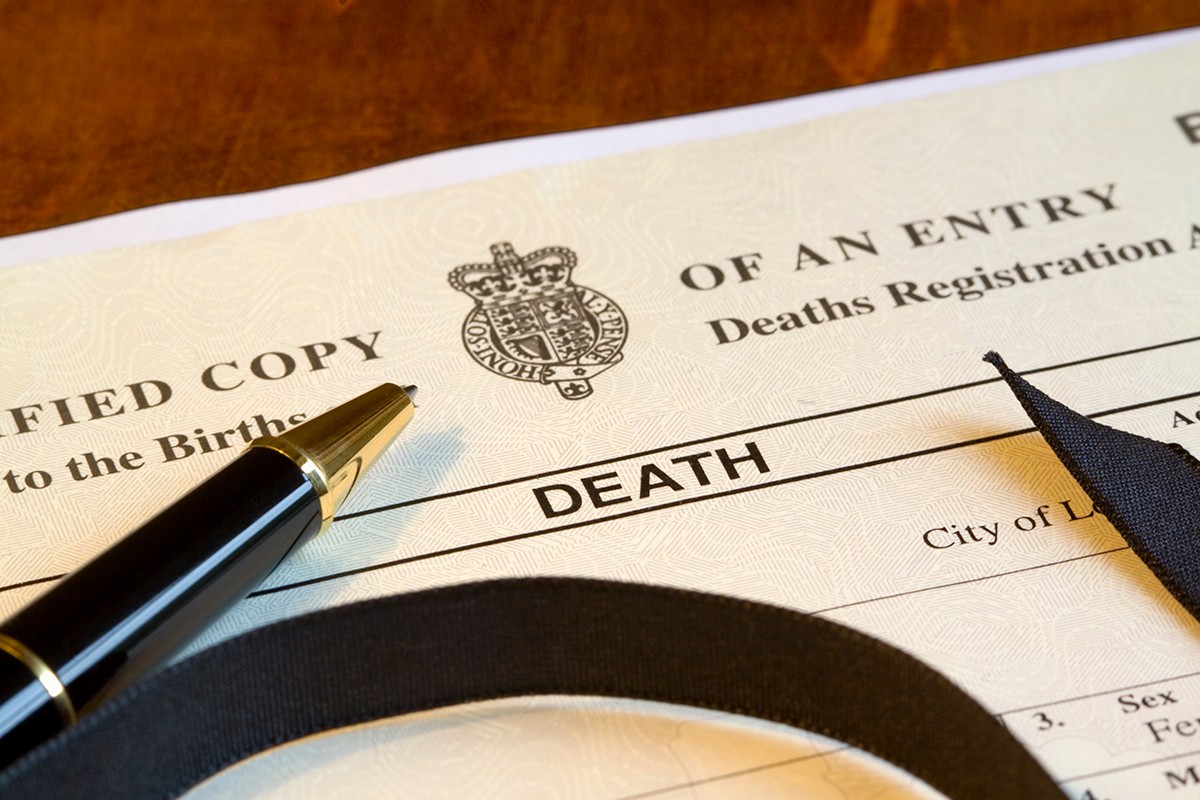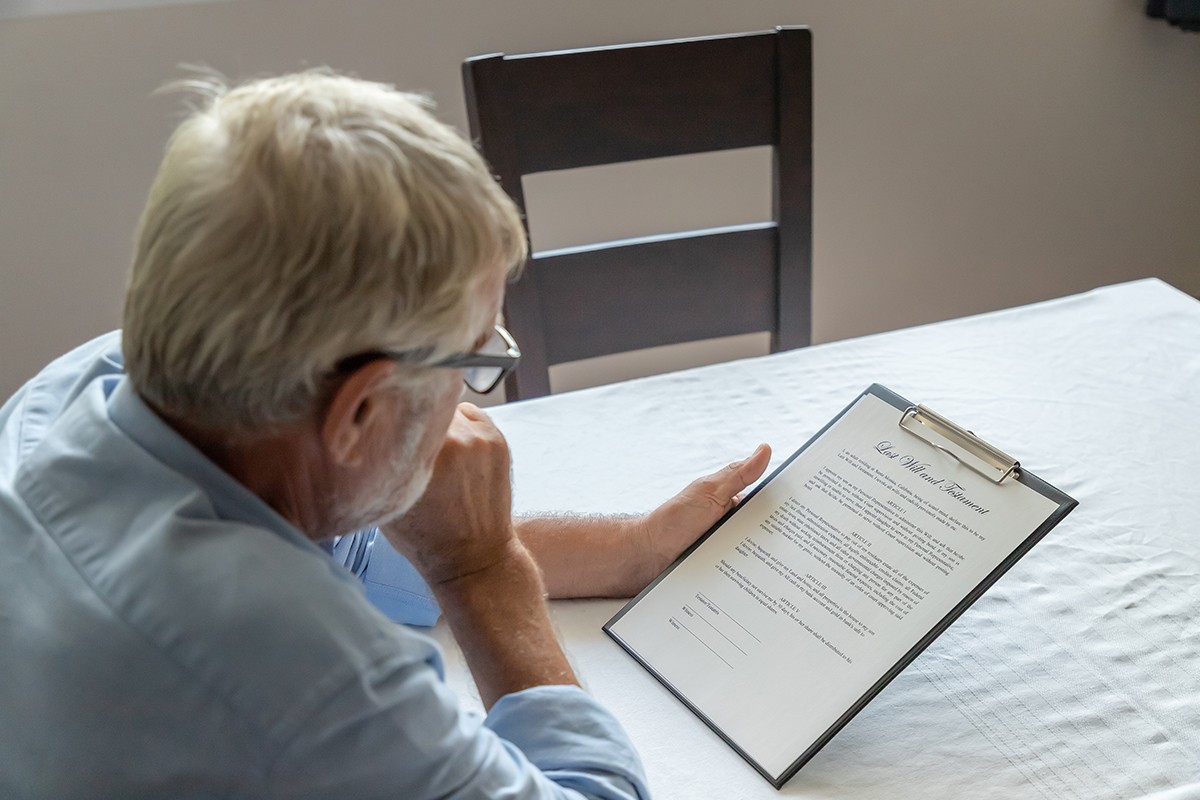If you found or received a check written in your deceased husband's name, it can be confusing to know what to do with it. Can you cash the check? Should you return it to the issuer? Let's take a look to see if you are able to cash the check.
In order to cash a check made out to your deceased husband, you will need to see if there is a POD (payable on death) or TOD (transfer on death) designation on the account. If there is, you will be able to cash the check by presenting the proper identification to the bank. If there is no such designation, you will not be able to cash the check.
The legality of cashing a check made out to a deceased person is an added layer of complexity when grieving the loss of a loved one. In this article, we will explain the process of what to do if you have a check made out to your deceased husband. In addition, we will answer other frequently asked questions about this matter.

How Can I Cash A Check Made Out To My Deceased Husband?
Losing a loved one is hard enough, but having to deal with the financial matters can be overwhelming. If you have recently lost your husband, you may be wondering what to do about the check he left behind.
The first thing to do is check for a POD or TOD designation. This means that your husband made a beneficial designation on the account before his death. If the beneficiary is named on the account, they will be able to cash the check by presenting proper identification to the bank.
If you are named as the beneficiary on the account, you will need to bring a copy of the death certificate to the bank in order to cash the check. In addition, bring your ID and any other documents that the bank may require.
Hopefully, the bank will accept the death certificate and ID as sufficient documentation to allow you to cash the check. It's important to act quickly, as the bank may require that the check be cashed within a certain time frame.
In addition, banks may freeze the account of a deceased person. This means that you will not be able to access any funds in the account.
Lastly, the bank may only allow the check to be deposited into the POD account rather than cashing it outright or depositing it into a personal account.
Does A Bank Account Get Frozen When The Owner Dies?
Banks will typically freeze the account if it's only in the name of the deceased person. This is done to prevent fraud and protect the assets of the estate. In order to access the funds in the account, you will need to go through probate.
The account will typically remain frozen until the court appoints an executor. Once the executor is appointed, they will be able to access the funds in the account and distribute them according to the will or estate plan.
If there is no will or estate plan, the funds in the account will go through intestate succession. This means that the state laws will dictate how the assets are distributed.
You can also petition to be appointed as the executor of the estate. This will give you access to the funds in the account so that you can pay for any debts or expenses related to the estate.
What If The Account Is A Joint Account?

If the account is a joint account, then the surviving spouse will typically be able to access the funds. However, this will depend on the state laws and the bank's policies.
It's important to check with the bank to see what their policies are regarding joint accounts. Each bank is different, so it's best to ask ahead of time.
As the spouse, you will still need to provide the death certificate and ID to the bank. The bank may also require additional documentation, so it's important to ask ahead of time.
In some cases, the bank may require that the account be closed and opened in the name of the surviving spouse.
What If There Is No Beneficiary Named On The Account?
If there is no beneficiary named on the account, then the funds will go through probate. Probate is a legal process that is used to settle the estate of a deceased person.
The court will appoint an executor to oversee the probate process. The executor will be responsible for distributing the assets of the estate according to the will or estate plan. If there is no will or estate plan, the assets will be distributed according to state law.
The probate process can take several months, so it's important to be patient. Once the probate process is complete, the executor will be able to access the funds in the account and distribute them according to the will or estate plan.
How Are Banks Notified Of A Death?
Typically, the next of kin or executor of the estate will notify the bank of the death. They will need to provide the death certificate and ID to the bank.

This is a good time to ask any questions that you may have about the account, such as how to access the funds or whether the account will be frozen.
Since each bank is different, it's important to ask ahead of time so that you know what to expect. They can help you with the next steps and answer any questions that you may have.
What Happens If You Don't Probate?

If you don't probate the estate, then the assets can't be distributed. This can cause problems down the road, so it's important to go through probate even if you don't think there are any assets.
While it's difficult to think about, death is a reality that we all must face. Planning ahead can make the process easier for your loved ones.
Going through the probate process as soon as possible can help to prevent any issues from arising. Probates have deadlines, so you don't want to miss them.
If you have any questions about probate, be sure to consult with an attorney. They will guide you through the process and answer any questions that you may have.
What Happens If You Withdraw Money From A Deceased Person's Bank Account?
Withdrawing money from a deceased person's bank account is called misappropriation of funds. This is a serious offense that can result in jail time.
It's important to note that you can only withdraw money from the account if you are the executor or administrator of the estate. If you are not, then you will need to get permission from the court.
Withdrawing money without permission can result in criminal charges. It's important to speak with an attorney if you have any questions about withdrawing money from a deceased person's bank account. This way, you can avoid mistakes that could result in criminal charges.
What If Someone Who Is Deceased Wrote Me A Check?

As long as the bank account is still open and active, the check should clear. However, if the account has been closed, then the check will likely bounce.
If you're not sure whether the account is still open, you can always call the bank and ask. They will be able to tell you whether or not the check will clear.
It's important to note that if the check does bounce, you will be responsible for the returned check fee. The fee varies from bank to bank, so double-check that there are funds in the account to cover this.
If you have any questions about a check that was written by a deceased person, be sure to contact the bank for more information.
Can A Bank Release Funds Without Probate?
In some cases, the bank may be able to release funds without probate. However, this varies widely on a state-by-state basis.
Some states require that all accounts go through probate regardless of the amount of money in the account. Other states have a threshold, such as $5,000 or $10,000.
If you are the beneficiary of the account, you will need to contact the bank to see if they can release the funds without probate. Be sure to have the death certificate, will, and ID ready, as they will likely ask for these documents.
Final Thoughts
Dealing with a death is never easy. There are many things that need to be taken care of, and it can be overwhelming. Getting legal help can make the process go more smoothly.
If you have any questions about probate or the bank, be sure to consult with an attorney. They can help guide you through the process and answer any questions that you may have.
Made it to the end? Here are other articles that you might find helpful:
Does Life Insurance Cover Accidental Death?



